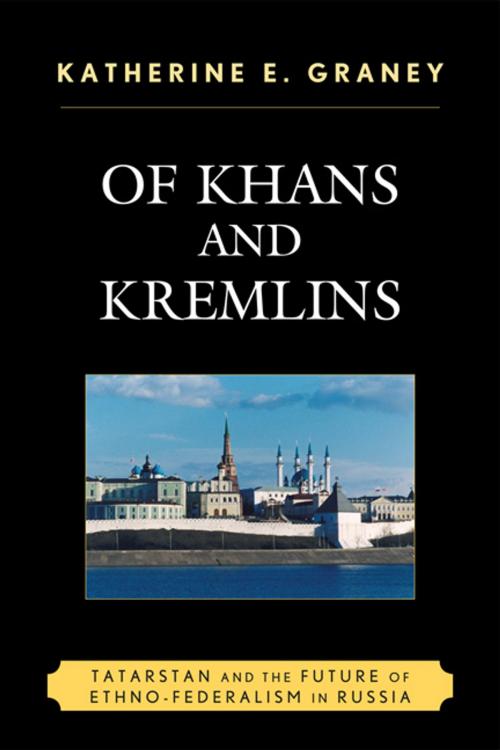Of Khans and Kremlins
Tatarstan and the Future of Ethno-Federalism in Russia
Nonfiction, Social & Cultural Studies, Current Events, Political Science, Government, Local Government, History, Asian, Russia| Author: | Katherine E. Graney | ISBN: | 9780739132005 |
| Publisher: | Lexington Books | Publication: | February 16, 2009 |
| Imprint: | Lexington Books | Language: | English |
| Author: | Katherine E. Graney |
| ISBN: | 9780739132005 |
| Publisher: | Lexington Books |
| Publication: | February 16, 2009 |
| Imprint: | Lexington Books |
| Language: | English |
Katherine E. Graney examines one of the most important, puzzling, and ignored developments of the post-Soviet period: the persistence of the claim to possess state sovereignty by the ethnic republic of Tatarstan, one of the constituent members of the Russian Federation. In the first book by a Western scholar in English to chronicle the efforts made by the leadership of the Russian republic of Tatarstan to build and retain state sovereignty, Graney explores the many different dimensions of Tatarstan's move to become independent. By showing the 'sovereignty project' that the Tatarstani people have begun in order to realize their vision of becoming a separate political, social, and economic entity within the Russian Federation, Graney makes the case that this Tatarstani movement will significantly influence Russia's contemporary development in important and heretofore unrecognized ways. This book provides new insight into tackling policy issues regarding inter-ethnic relations and cultural pluralism within Russia, as well as within other European nations currently facing the same policy dilemmas.
Katherine E. Graney examines one of the most important, puzzling, and ignored developments of the post-Soviet period: the persistence of the claim to possess state sovereignty by the ethnic republic of Tatarstan, one of the constituent members of the Russian Federation. In the first book by a Western scholar in English to chronicle the efforts made by the leadership of the Russian republic of Tatarstan to build and retain state sovereignty, Graney explores the many different dimensions of Tatarstan's move to become independent. By showing the 'sovereignty project' that the Tatarstani people have begun in order to realize their vision of becoming a separate political, social, and economic entity within the Russian Federation, Graney makes the case that this Tatarstani movement will significantly influence Russia's contemporary development in important and heretofore unrecognized ways. This book provides new insight into tackling policy issues regarding inter-ethnic relations and cultural pluralism within Russia, as well as within other European nations currently facing the same policy dilemmas.















